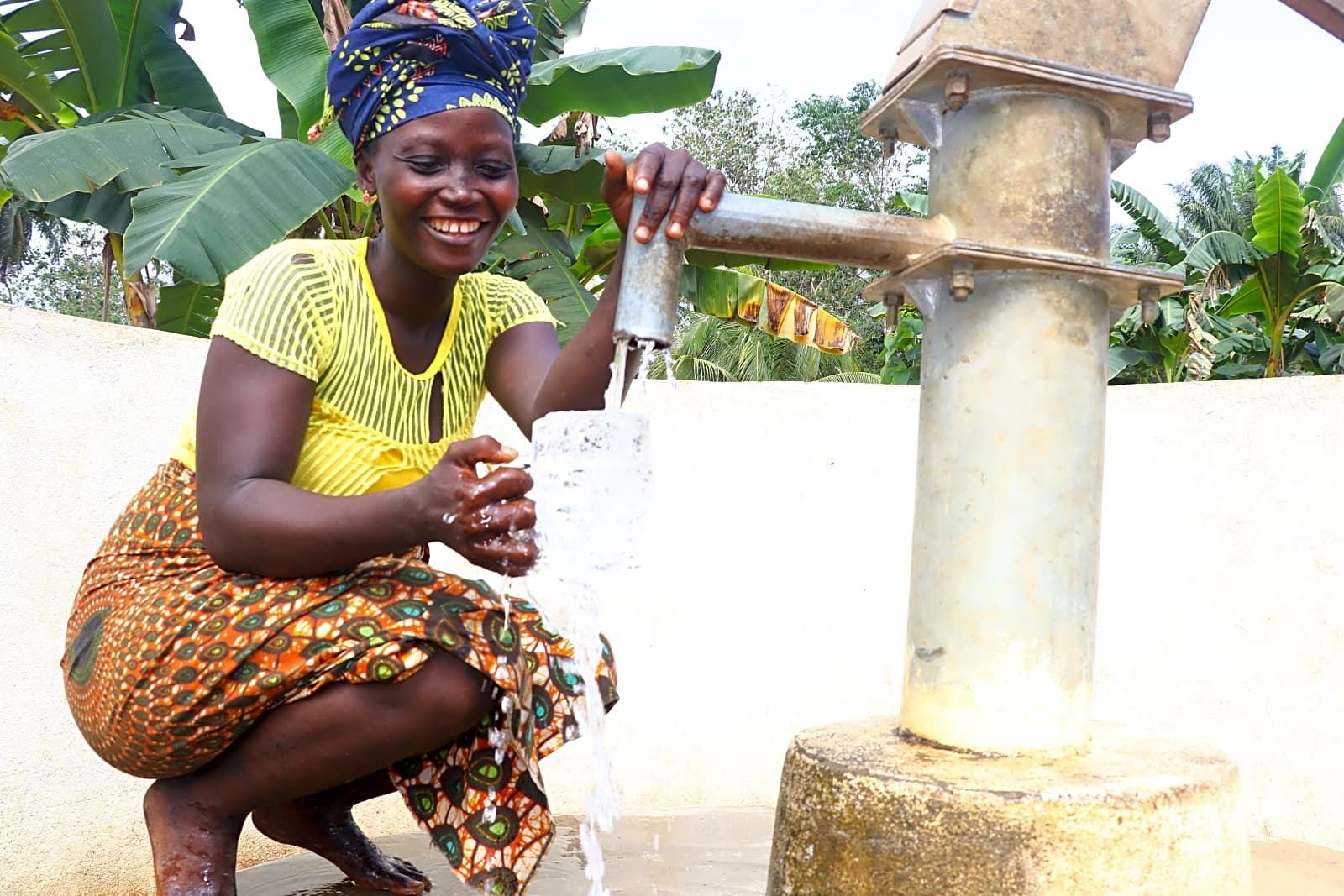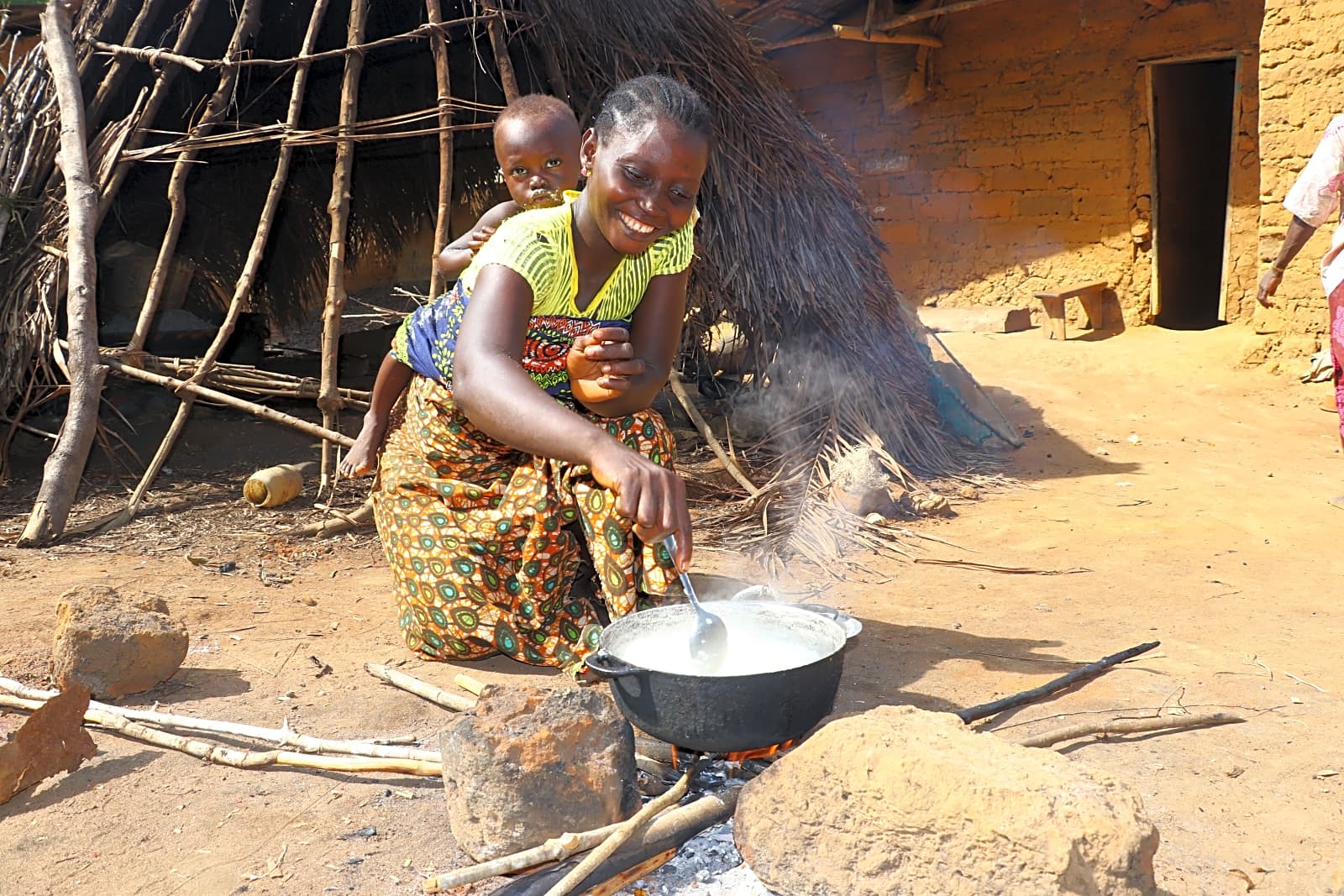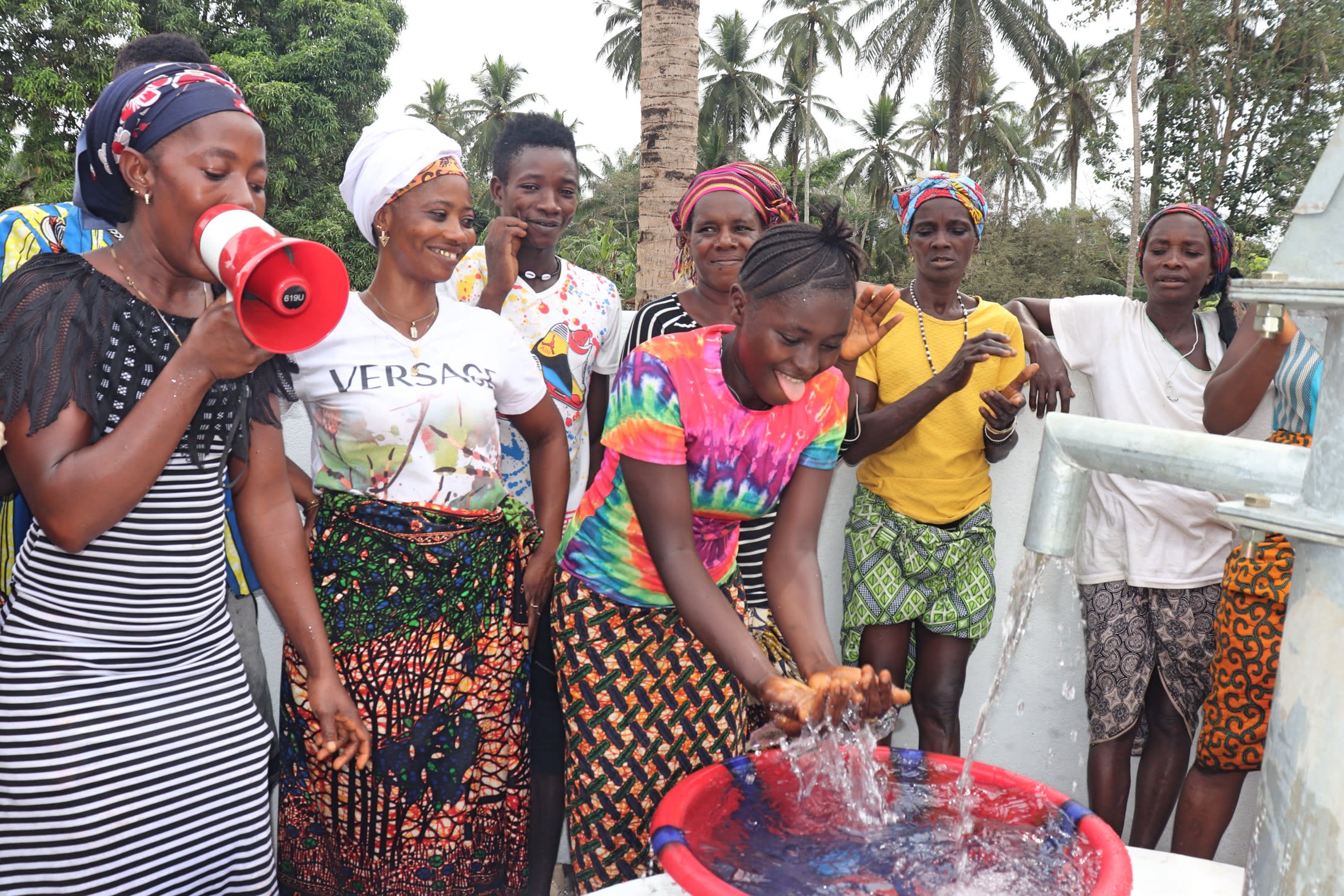Three years ago, the well in Rogberay stopped working. Ever since, their only source of water has been their local swamp.
A few times, community members have pooled funds in hopes of repairing or rehabilitating their well and get water flowing again. However, all of these attempts failed, and recently, the pump was stolen.
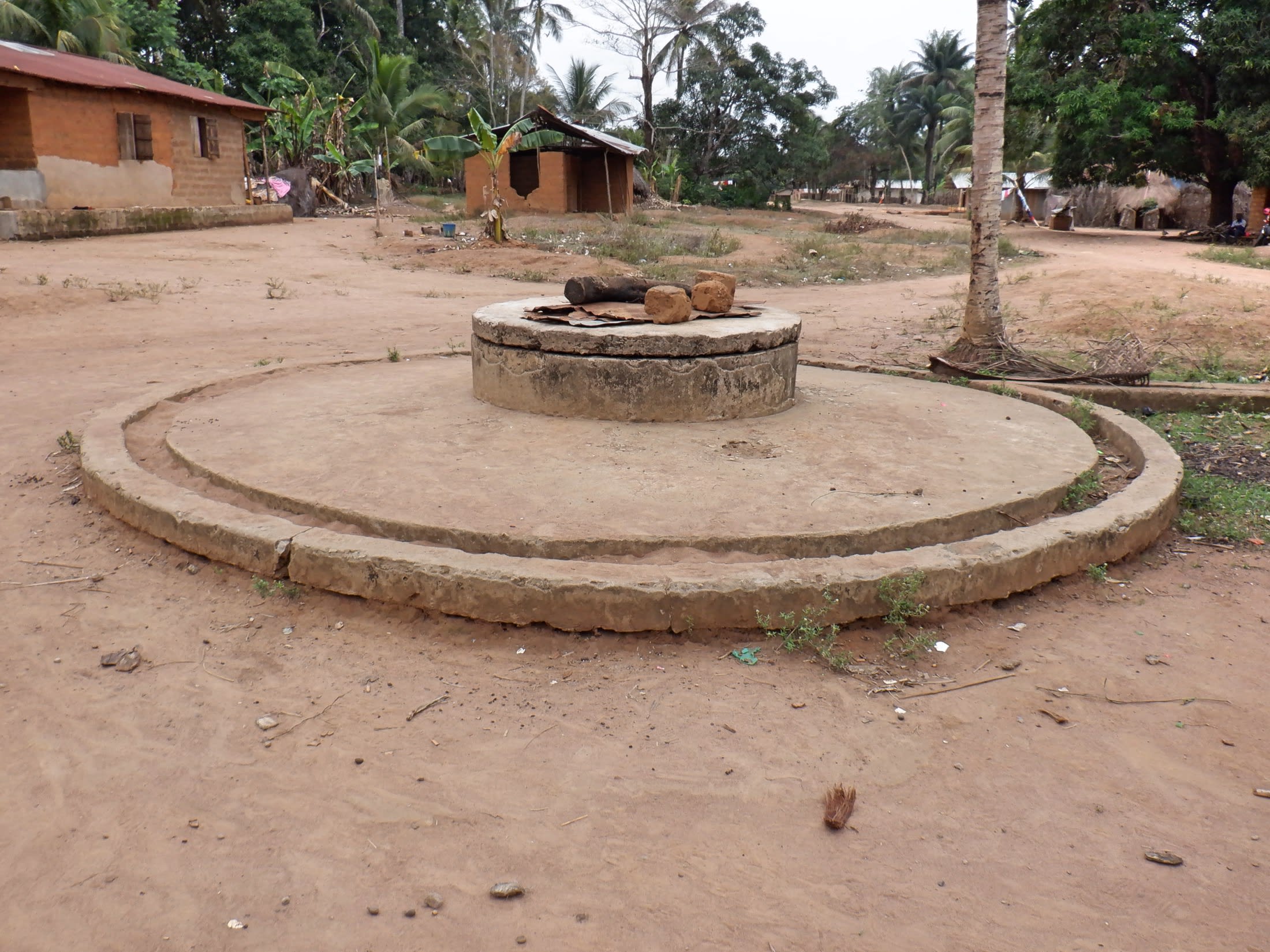
Because fetching water from the swamp is such an involved task, some people have taken to hiring local motorcycle taxi drivers to fetch water for them, sometimes being swindled out of both their money and their water containers.
But looking at the swamp and the road to get there, it's clear why someone might want to skip a water-fetching trip.
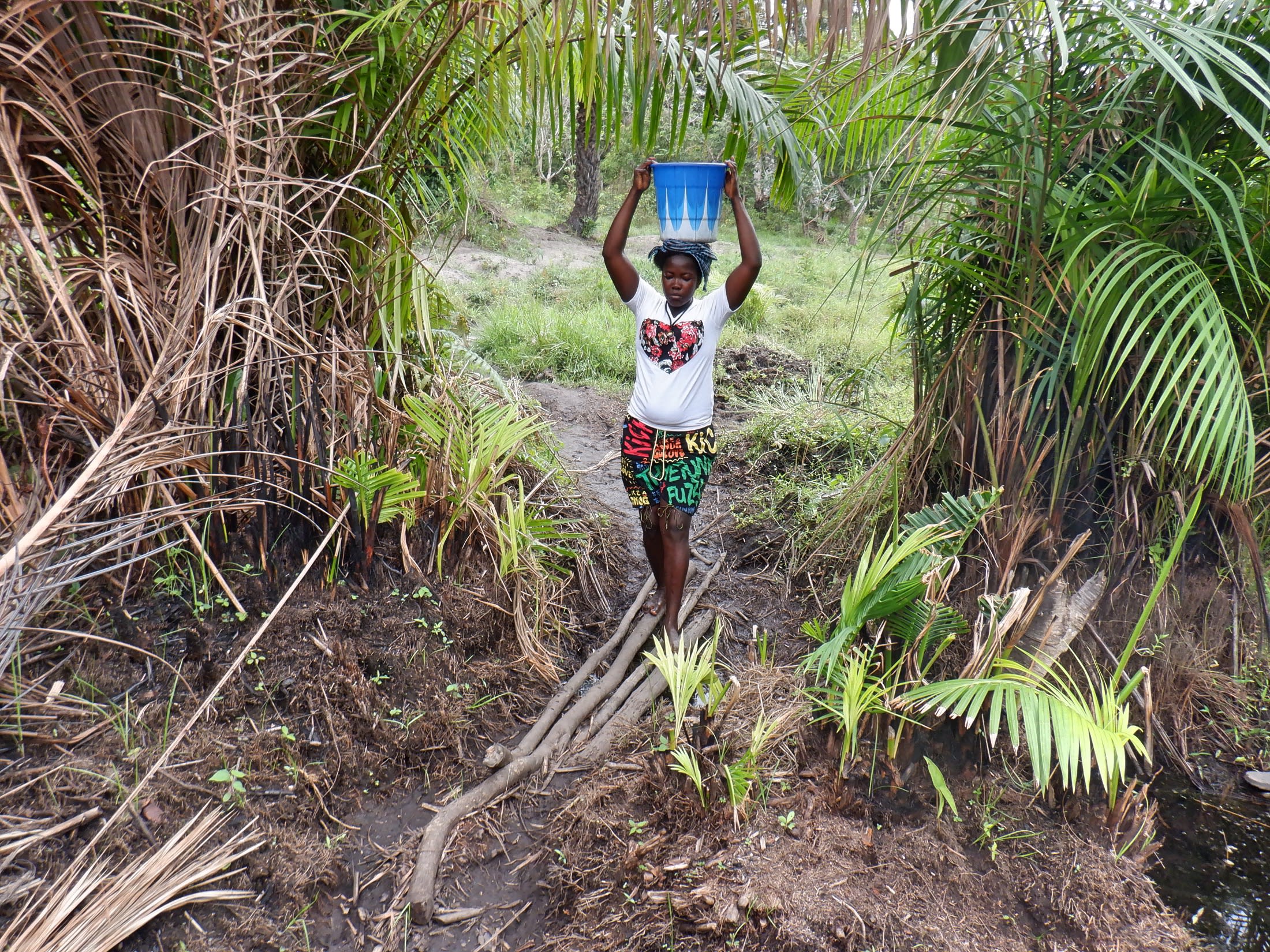
"Fetching water from the swamp is not easy," said 25-year-old trader Fatmata (in the picture above). "I must walk [a] far distance to fetch water from this source. The water at the source becomes dirty easily, changing in color. This makes it very hard for me to fetch drinking water."
"I am greatly affected by the current water situation," said 16-year-old Isatu (in the below photo). "The road to the swamp is slippery and bushy. The bridge we normally cross to go to the swamp is not strong. One can easily fall from it and injure him/herself. I have experienced this before. I spoilt the container of water I was carrying."
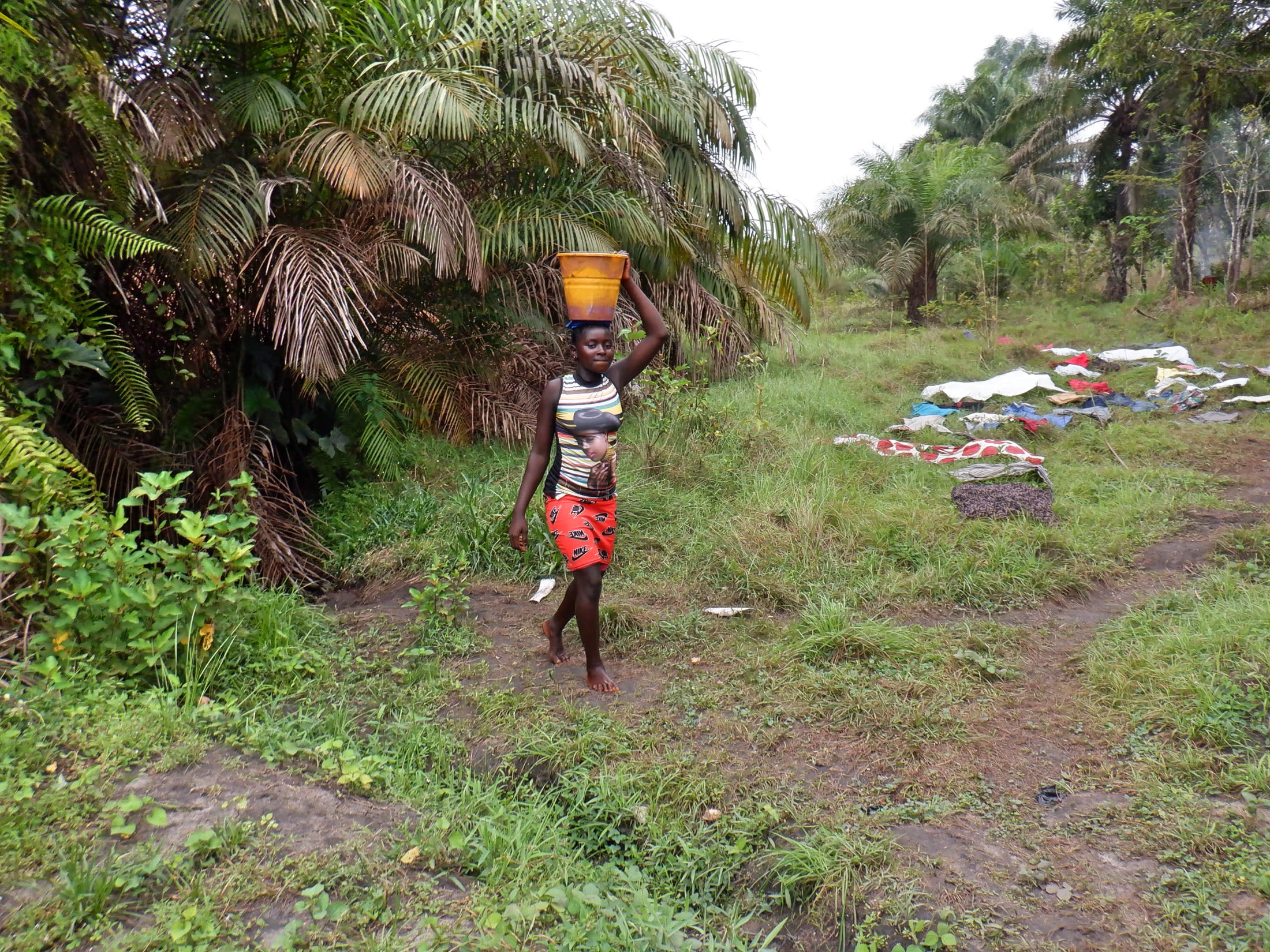
Although the water source is difficult to access and dirty, it is also high in demand because it is the only available water source in the community, so lines of people form, waiting to be the one stooping over the muddy water's edge to scoop up a container of brown, sludgy water.
All Isatu's schoolmates are also trying to rush and fetch water for their households in the mornings before school. "I must wait for them to finish before they would ever allow me to fetch water," Isatu explained. "This waiting time slows the work I normally do at home before leaving, such as cleaning the house, washing cooking utensils, washing the dishes, [and] washing the potato leaves and other vegetables we normally cook for the day. All these tasks will be delayed. Similarly, after fetching water from the swamp, most times, I leave the water in the container to settle down for some time before using the water. The waiting time for the water to settle hinders the prompt use of the water, especially for cooking and bathing."
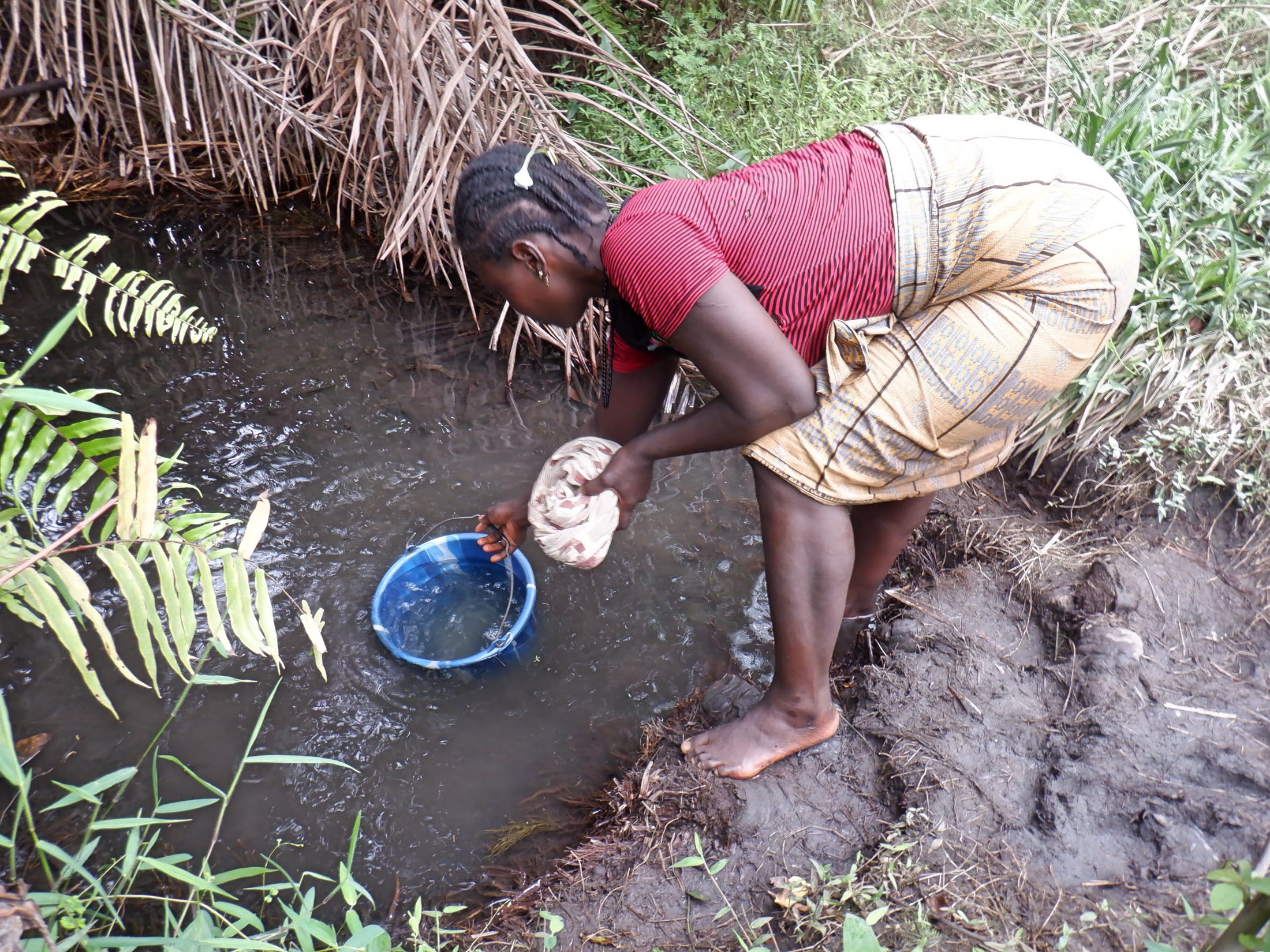
And it's not only students whose lives must be put on hold to get water. Fatmata often opens her shop late due to this.
"Most times when I go to the swamp, there [are] a lot of people at the water point," Fatmata said. "This normally delays me because I must wait for my turn. The long waiting time also hinders the petty trade I normally do. Every day, I must attend to customers at home. Customers will come, and I would be busy at the swamp. This really slows the sale of the things I sell, for example rice, chewing gum, sugar, butter, and plastic."
For Isatu and other kids, the time and energy stolen by the community's lack of ready access to water means she has little energy for school, which causes her performance to suffer. "There are times I leave some of [my] work undone for me not to be late for school," she said.
But time and energy aren't the only cost to using this contaminated surface water. The community members must also pay with their health, not only from drinking the dirty water but also from a lack of proper hygiene and sanitation that only water can provide. A few community members have died in recent year due to cases of typhoid and Hepatitis A, which is spread through the fecal matter of an infected person—an easily preventable disease with proper hygiene.
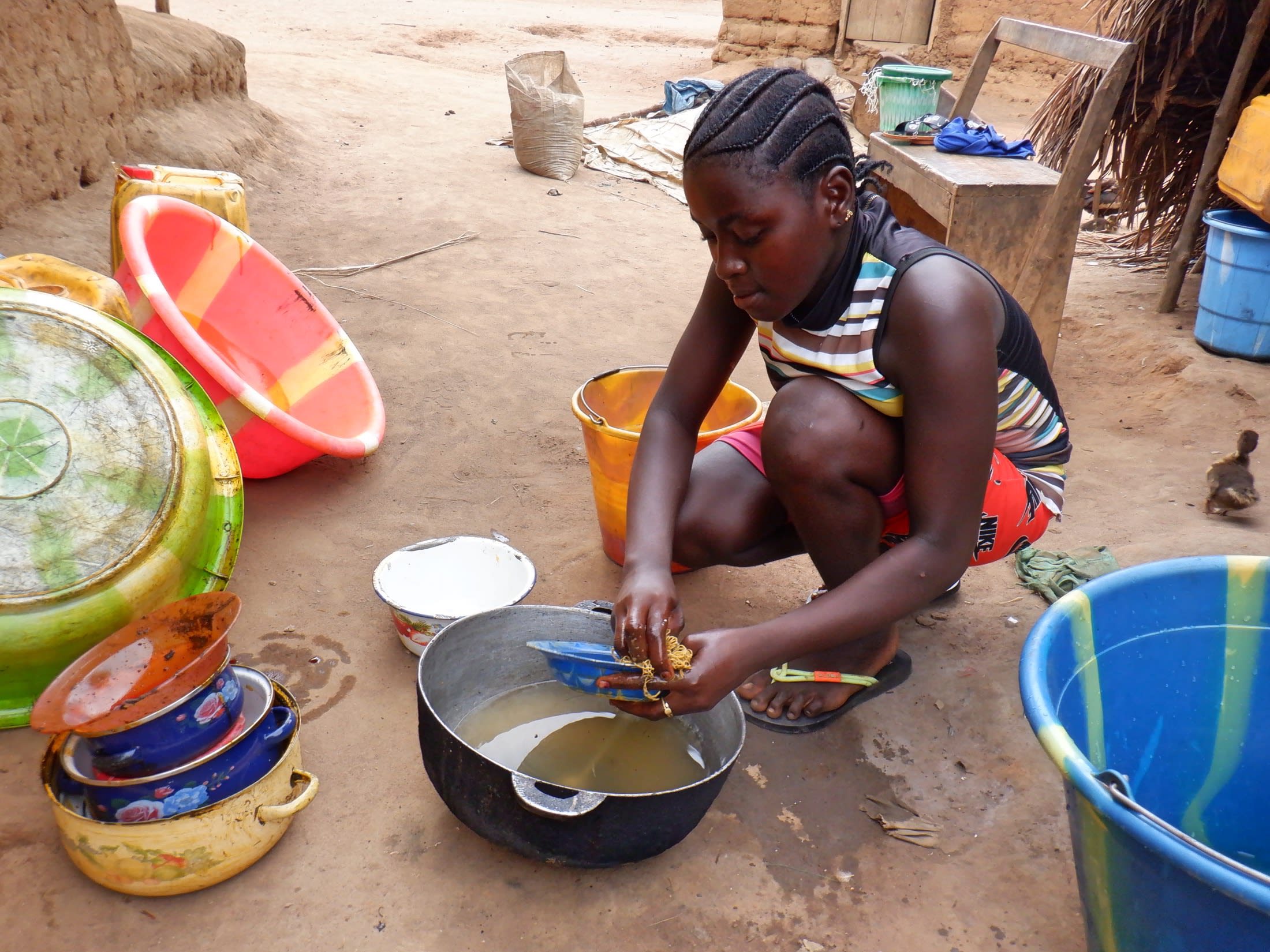
Above, Isatu washes dishes with the swamp's dirty water.
Because of the high rate of mortality from water-related illness in Rogberay, the community members have learned to visit the local health clinics rather than relying on traditional herbal treatments as many communities in Sierra Leone still do.
"The community members always visit the hospital whenever they experience strange signs and symptoms," said our field officer, Julius. "This is hardly seen in other communities that are solely depending on herbalists for [a] cure."
The community members are Rogberay are trapped in poverty because of their lack of access to safe, reliable water. With a rehabilitated well right in town, health, hygiene, and happiness will allow these people to thrive and strive for more.
Here’s what we’re going to do about it:
Well Rehabilitation
The well marked for this overhaul is dry for a few months every year and needs major work to supply adequate, clean water to the community year round. The pump will be removed, and a hand auger will be lowered inside and powered by a drill team. This hand auger will allow the team to drill several meters deeper to hit a sufficient water column that will ensure the well supplies water throughout all seasons.
As the team drills, casing will be installed, transforming the bottom of this hand-dug well into a borehole. PVC piping will connect this lower system directly to the pump, a construction that we know will also improve the quality of water.
Once this plan is implemented, everyone within the community will have access to safe drinking water in both quality and quantity, even through the dry months.
Hygiene and Sanitation Training
There will be hygiene and sanitation training sessions offered for three days in a row.
After our visit, the hygiene and sanitation trainer decided it would be best to teach community members how to build a tippy tap (a hand-washing station built with a jerrycan, string, and sticks). They will use these tippy taps for handwashing demonstrations, and will also teach about other tools like dish racks and the importance of properly penning in animals.
These trainings will also strengthen the water user committee that manages and maintains this well. They enforce proper behavior and report to us whenever they need our help solving a serious problem, like a pump breakdown.

